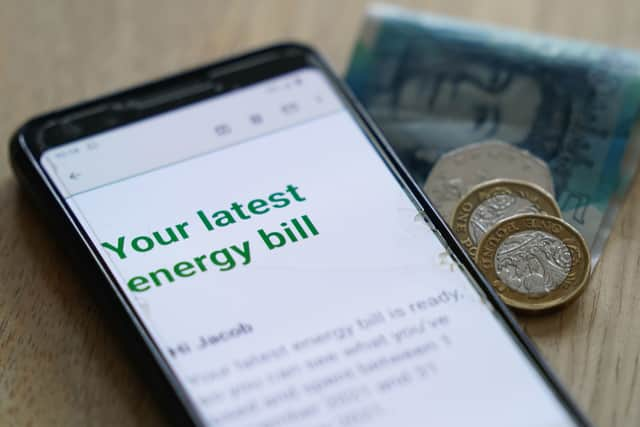Energy Price Cap: UK power bills expected to shoot up an average of £94 from New Year's Day
and live on Freeview channel 276
Any hope of relief from the cost of living crisis won't be coming from energy bills, with a change in the new year set to sting British households an extra £94 on average.
Energy regulator Ofgem has announced it will raise its energy bill price cap 5% on Monday (1 January), from £1,834 for a typical dual-fuel (gas and electricity) household to £1,928. The move is driven almost entirely by rising costs in the international wholesale energy market because of market instability and global events - including the conflicts in Ukraine and the Middle East.
Ofgem chief executive Jonathan Brearley has acknowledged that many people are currently having a “difficult time” and that any increase in bills will be worrying to many. But he said the rise was a result of the wholesale cost of gas and electricity rising “which needs to be reflected in the price that we all pay”.
But what exactly is the energy price cap, and what impact is the January hike expected to have on British families? Here's everything you need to know:


What is the energy price cap?
The energy price cap is a limit on the maximum amount suppliers can charge households in England, Wales and Scotland for each unit of gas and electricity they use - with energy in Northern Ireland regulated separately. It was introduced in 2019 by the government to protect households from sharp fluctuations in wholesale costs, like is being experienced now.
Industry regulator Ofgem reviews and sets the energy price cap every three months. It is worth noting, however, that the headline price cap figure is an average across households rather than an absolute cap on bills, so those that use more can still end up paying more.
What will it mean for British households?
Ofgem has made it clear to suppliers that it expects them to identify and offer help to those who are struggling with bills. The regulator says a proposed £16 one-off price cap adjustment - to be paid between April 2024 and March 2025 - should be used by energy companies to support struggling customers and write off bad debts.
However, the evidence suggests and increasing amount of British households are already struggling with their energy bills, even though the energy price cap in 2023 was substantially lower than the £2,500 limit set the year before. Citizens Advice has said it was now helping record numbers of households with energy debt, and seeing more people than ever who cannot afford to top up their prepayment meter.
End Fuel Poverty Coalition coordinator Simon Francis told PA that struggling households were facing an assault from all sides. "Energy bills are going up just as winter bites hard, Christmas debts have to be paid off and the ongoing wider cost-of-living crisis continues into another year," he said.
Mr Francis called on Ofgem to abolish the January price hike. "The cruel impact of a change in bills at this time of year can’t be underestimated."
In Winter 2024/25, energy bills were expected to be 60% higher than they were in winter 2020/21, he added. "This means the UK Government needs to take much more action to help people stay warm this winter and every winter through increased support for home insulation and cheaper renewable energy.”
Warm This Winter spokeswoman Fiona Waters added that without more support, it will be anything but a happy new year for people trapped in Britain’s "broken" energy system. “We need to see the UK Government introduce an emergency energy tariff for vulnerable households and a help to repay scheme for those in energy debt.
"Failure to avert this cold homes crisis will lead to pressure on the NHS, a mental health catastrophe and additional winter deaths caused by living in cold damp homes," she said.
Comment Guidelines
National World encourages reader discussion on our stories. User feedback, insights and back-and-forth exchanges add a rich layer of context to reporting. Please review our Community Guidelines before commenting.
